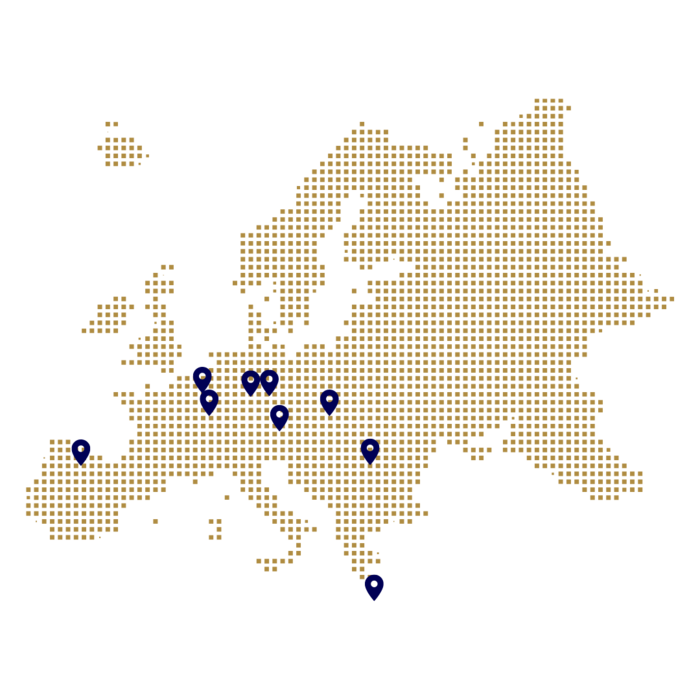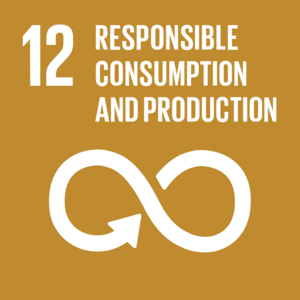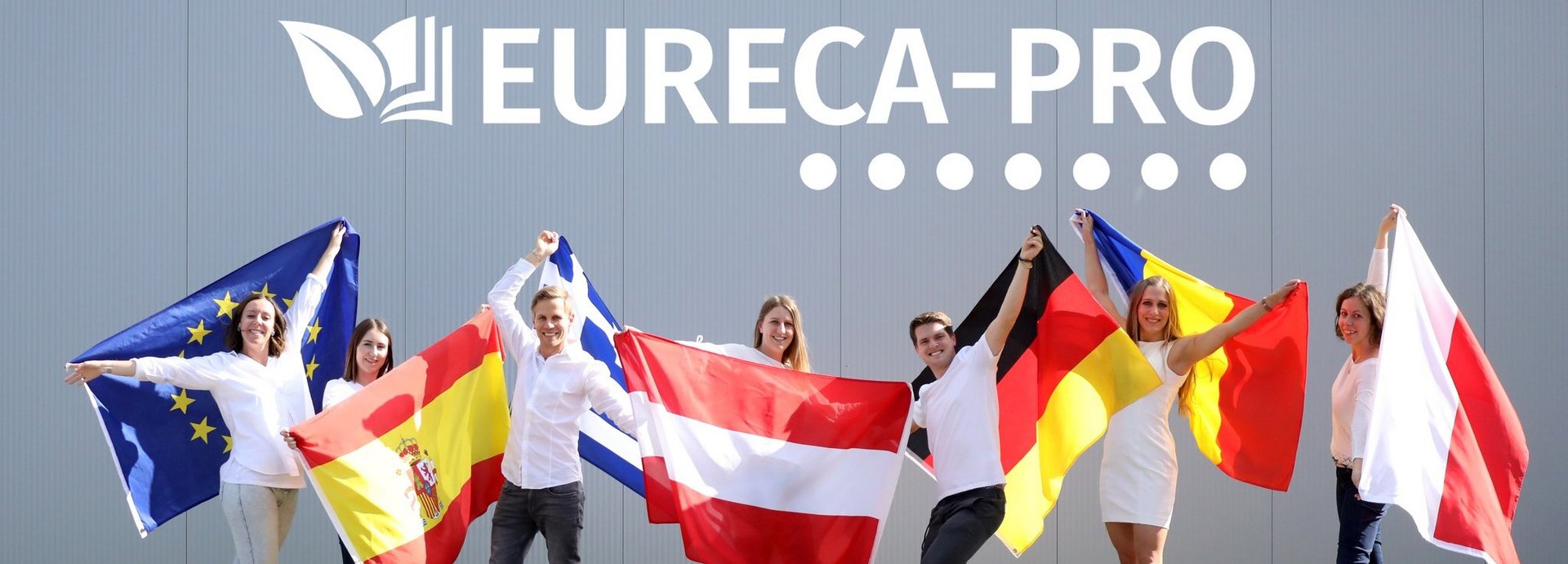We are a European University

As a member of the European University on Responsible Consumption and Production, students of Montanuniversität Leoben can profit from an international and interdisciplinary educatuion as well as numerous opportunities to build a European network. Your educational journey starts at Montanuniversität Leoben. In the course of your studies, you will be integrated into a European community consisting of 9 universities from 8 European countries: Austria, Germany, Belgium, Spain, France, Greece, Romania and Poland.
In the first European study programme of its kind, you will learn more about global developments and challenges in the field of responsible production and consumption.
The three core pillars of this study programme convey a unique and interdisciplinary perspective and prepare students for an international career in commerce, research and in the public sector.
1. Build a fundamental knowledge base of scientific and engineering principles for understanding the circularity of material flow systems on the production side.
2. Gain comprehensive knowledge on society and consumption behaviour.
3. Acquire and develop strong transversal and personal skills such as critical and interdisciplinary thinking along with creativity, innovation, intercultural and language skills.
Your Benefits:
• Profit from a unique degree programme in Europe that connects you with other European Universities.
• Learn about global challenges and how to develop innovative solutions along the value chain, combatting global warming in respect of planetary boundaries.
• Explore Europe and build an international network during your studies.
• Acquire skills that prepare you for international jobs (bonus: your English becomes perfects)
• Be part of the European University on Responsible Consumption and Production - EURECA-PRO (https://www.eurecapro.eu/) and study abroad at our partner universities: Technische Universität Bergakademie Freiberg (Germany), Technical University of Crete (Greece), Universidad de León (Spain), Silesian University of Technology (Poland), University of Petroșani (Romania), Hochschule Mittweida (Germany), Hasselt University (Belgium) and Université de Lorraine (France)
• Get support from the EURECA-PRO team in planning your studies as well as orgnising and financing your semester(s) abroad.
• Structure your study plan and choose parts of the content according to your interests.
Who we are / Committed to Planet A
The EURECA-PRO Alliance (European University on Responsible Consumption and Production) is one of 50 European University Alliances – an initiative of the European Commission to strengthen the European higher educational landscape.
EURECA-PRO consists of Montanuniversität Leoben (Austria), Technische Universität Bergakademie Freiberg (Germany), Technical University of Crete (Greece), Universidad de León (Spain), Silesian University of Technology (Poland), University of Petroșani (Romania), Hochschule Mittweida (Deutschland), Hasselt University (Belgium) and Université de Lorraine (France). Led by Montanuniversität Leoben, these nine partners have joined forces in order to enable students and staff to strudy, teach and research in the field of responsible consumption and production with the long-term goal of a joined and virtual European campus until 2040.
Our vision / Sustainable Development Goal 12
The implementation of SDG 12 (United Nations Sustainable Development Goal 12) in society is at the core of EURECA-PRO's mission and vision. Due to its interdiscilpinary composition and international expertise, EURECA-PRO is an ideal breeding ground for innovation covering technological, ecological, economic, policy and cultural aspects and their transfer in society.
EURECA-PRO stands for the creation of awareness for the responsibility of every individual as well as the transformation of the European educational landscape and sees itself as an incubator for innovative approaches with regard to education and society.

